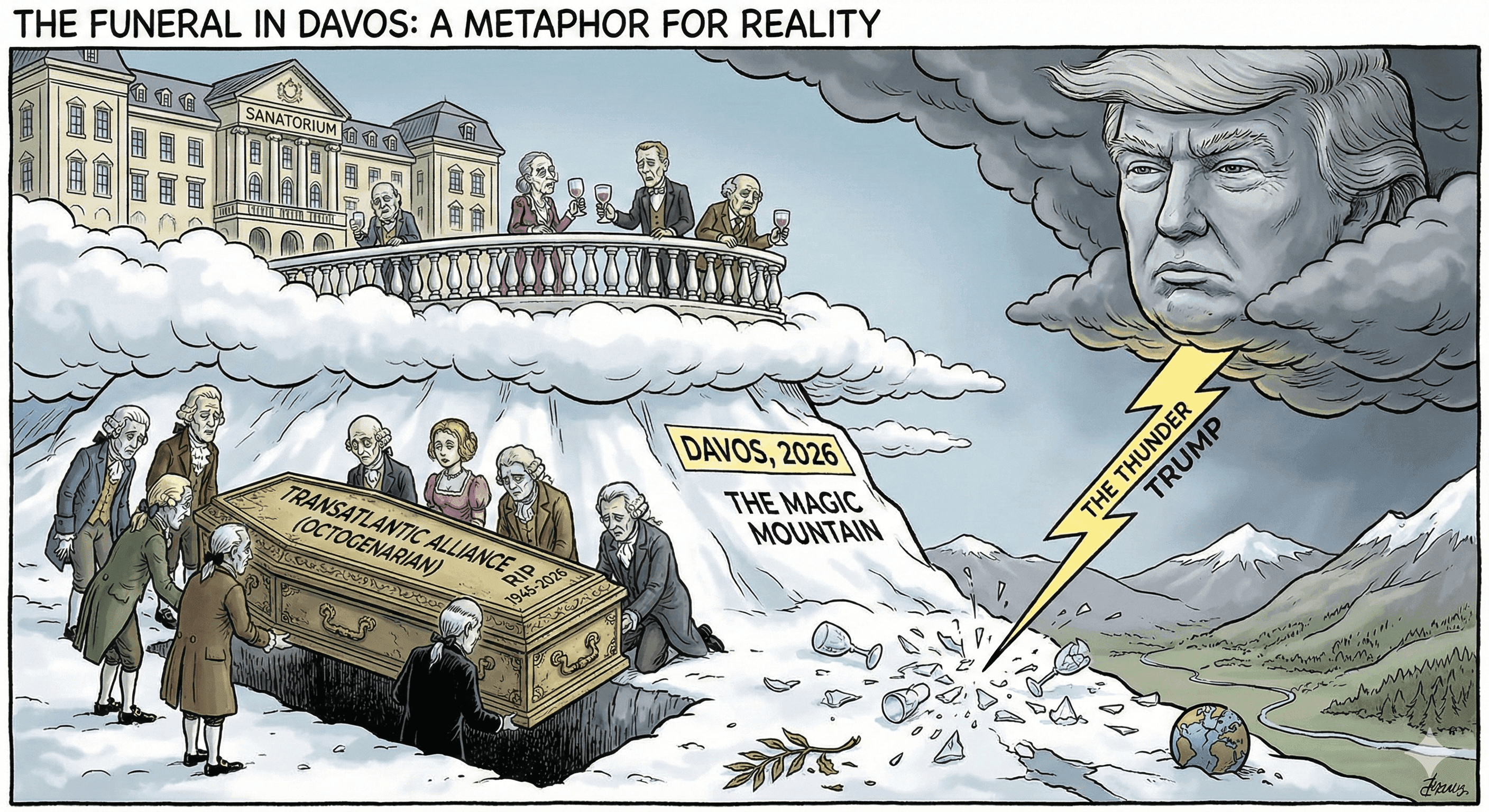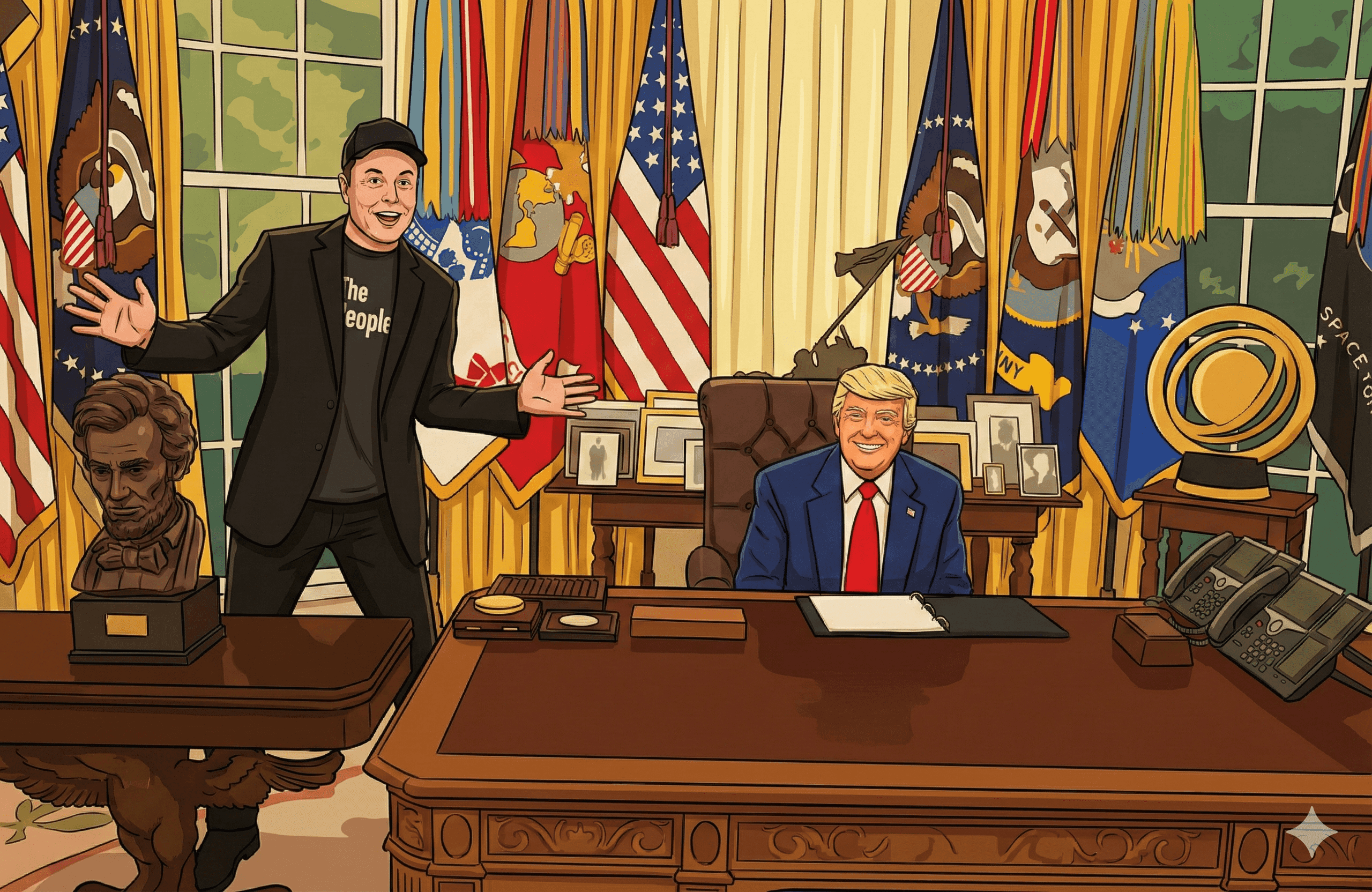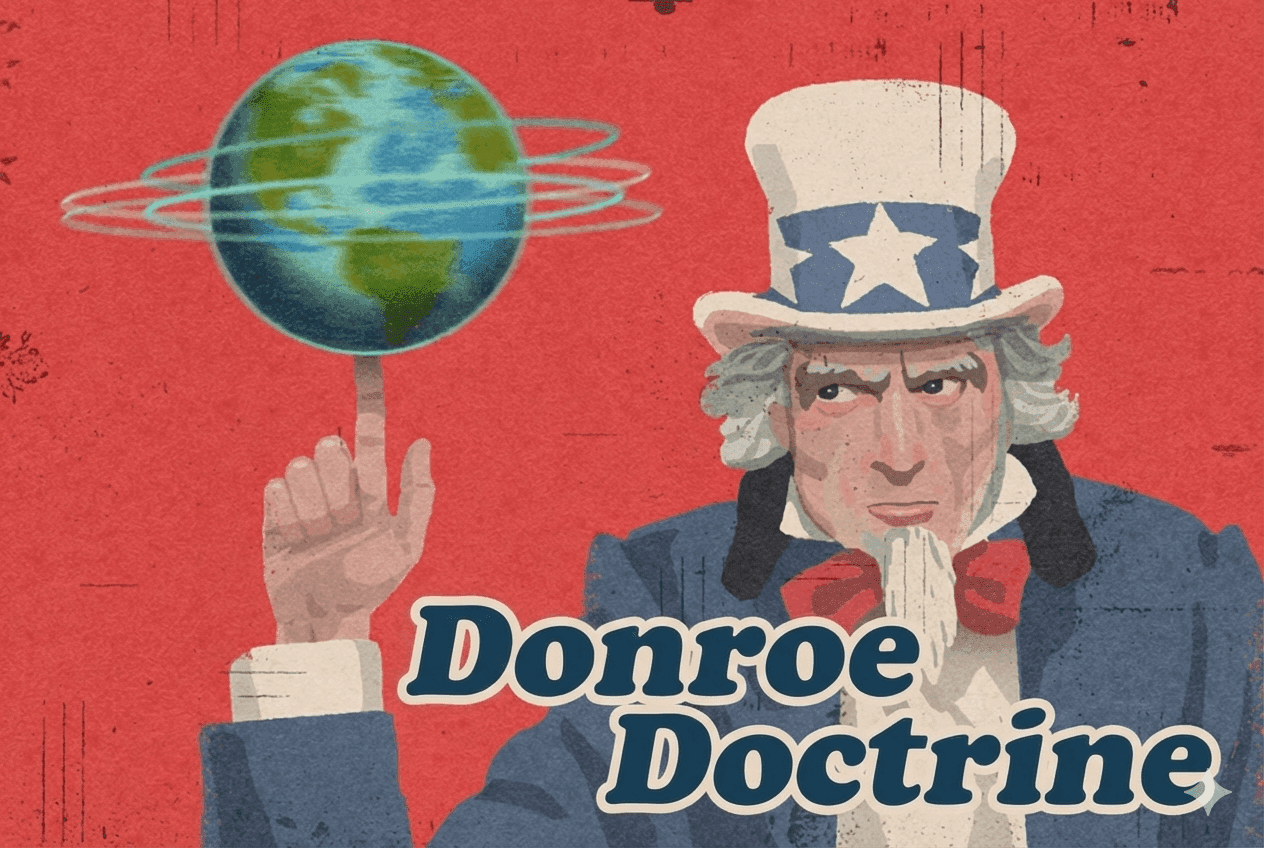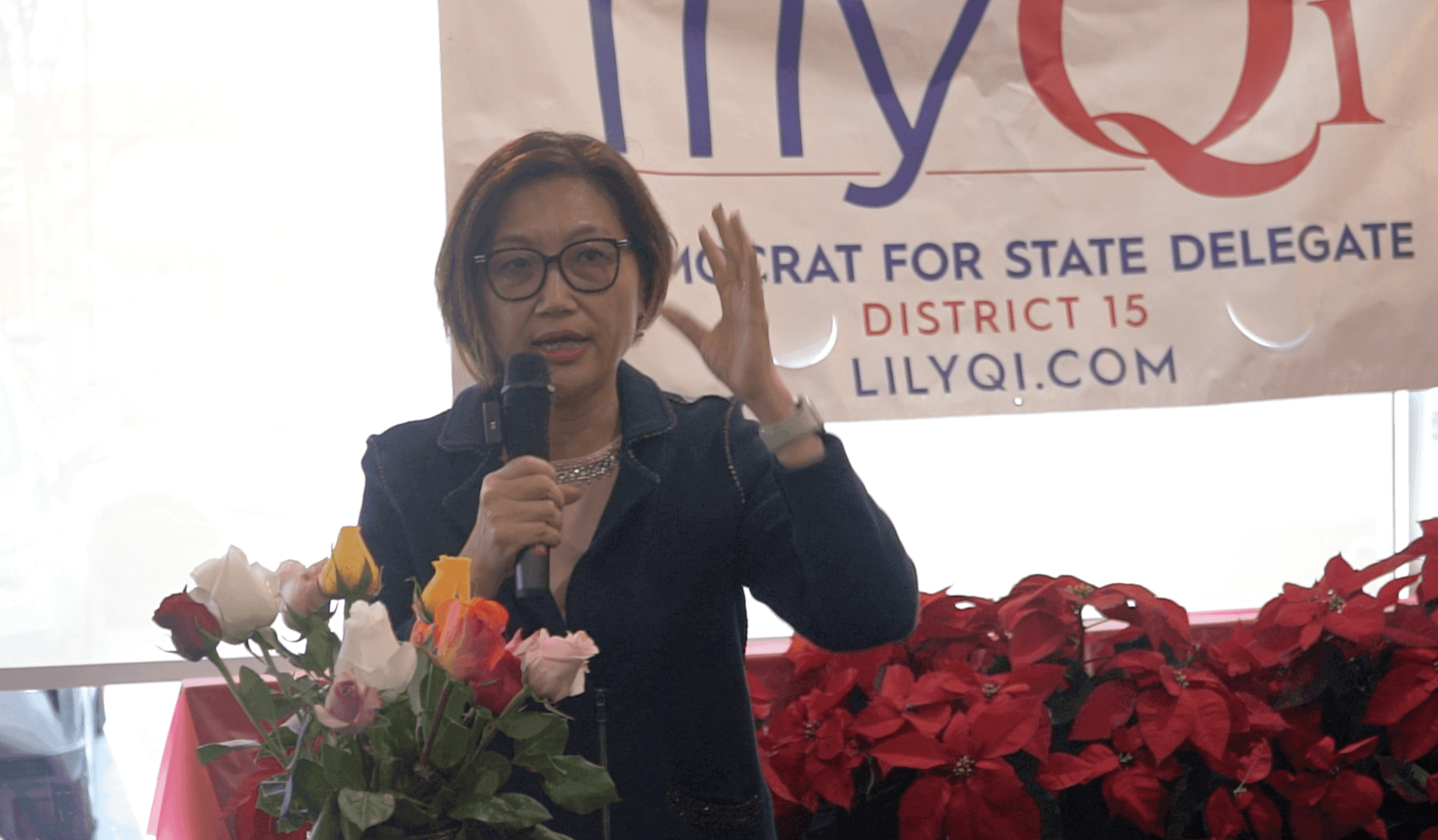Opinion | Peter Thiel: U.S. King Producer

At Donald Trump’s second inauguration, he was flanked by a bunch of tech billionaires, including Elon Musk—who appeared to share a dual presidency with Trump—as well as Meta’s CEO Mark Zuckerberg, Amazon’s Jeff Bezos, and Google’s Sundar Pichai. This scene led many to believe that by 2025, the tech elites from California’s deep-blue stronghold had shifted their ideological stance. Disillusioned with the Democrats, they appeared to have collectively aligned with the Republicans.
In reality, this shift began during Trump's initial presidential campaign in 2016, or perhaps even earlier.
It wasn’t until 2024 that Trump first gained endorsements from Silicon Valley for his presidential campaign—he had already secured support from big tech in 2016. At that time, one of his most prominent backers was Peter Thiel, the renowned venture capitalist and founder of PayPal.
Thiel was one of the earliest tech industry figures to endorse Trump. At a time when Trump was a political outsider, dismissed by Silicon Valley, Thiel stood out as nearly the only one among them to publicly support him and contribute significant funds to his campaign.
Throughout Trump's 2024 presidential campaign, however, Thiel remained notably absent—there was no public endorsement or any financial contributions from him.
However, this doesn’t mean Thiel doesn’t support Trump or that he voted for Democrats. On the contrary, he explained that it was clear the Democrats had lost public support, and whether he endorsed Trump or not, Republicans were doomed to win. Moreover, many of his Silicon Valley peers had already invested heavily in Trump, and that was enough. It didn’t matter whether he joined them.
Thiel is the type of person who steps in when no one else does, but retreats when everyone else is weighing in. This might be the key reason behind his success as one of the most accomplished venture capitalists from Silicon Valley.
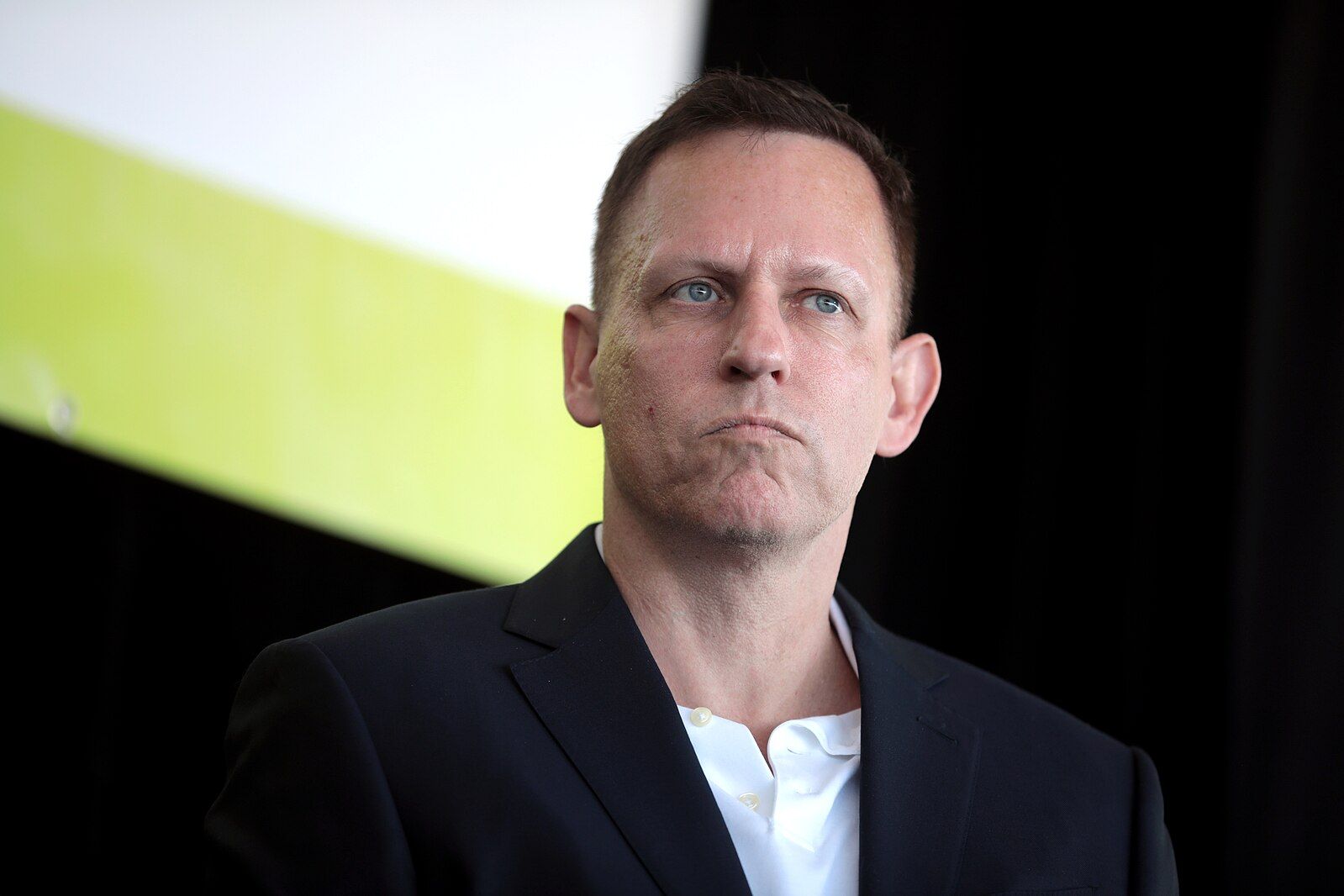
You may not be familiar with Peter Thiel by name, but I bet you're acquainted with his work—not through PayPal, but through his book Zero to One. The book that was regarded as a must-read textbook for any entrepreneur.
It turns out that Thiel applied his venture capital philosophy from Zero to One not just in business, but also in politics. He endorsed Trump when few others did, then distanced himself once Trump gained widespread support. Thiel operates from zero to one, but once that’s achieved, he’s out—leaving the rest to go from one to a hundred.
If you’ve been closely following the tech industry, you’re likely familiar with Thiel’s remarkable achievements. However, his ventures into political analysis and investment might offer a fresh perspective. Let’s shift our focus and examine this venture capitalist through a different lens. His actions in the political arena could provide insights into the next chapter of Washington, D.C.’s current turbulence.
Political Coming Out
Peter Thiel grew up in an evangelical household and identifies as gay. However, it was his political coming out that proved even more surprising than his divergence from traditional evangelical norms regarding gender identity.
At the 2016 Republican National Convention, Thiel publicly endorsed Trump. Three months later, he pledged $1.25 million to support Trump's presidential campaign.
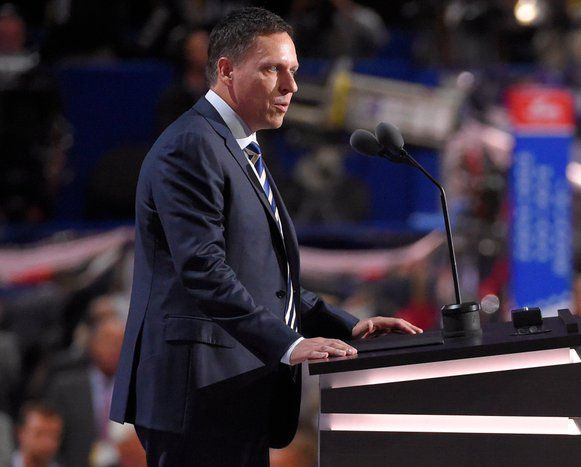
Thiel’s actions defied the orthodoxy of Silicon Valley at the time, where the majority opposed Trump and supported Hillary Clinton. Many Silicon Valley elites viewed Trump as not only wrong but outright evil. From their perspective, Thiel’s endorsement of Trump was a stark deviation from the norm—aligning himself, in their eyes, with the villain.
Coming out about one's sexual orientation can risk losing family and friends, but Thiel’s political coming out cost him even more.
At the time, Thiel was a member of Facebook's board and faced significant internal opposition after publicly endorsing Trump. Many Facebook employees called for his removal, arguing that his political stance conflicted with the company's values. Zuckerberg ultimately defended Thiel's position, ensuring he kept his seat on the board. However, Thiel later chose to step down from the board of Facebook’s parent company, Meta, in 2022, prioritizing his political activities supporting pro-Trump candidates in the midterm elections.
Before stepping down from Meta's board, Thiel had already distanced himself from Silicon Valley. His endorsement of Trump in 2016 sparked significant opposition within the tech community, with some even withdrawing their cooperation with him and his ventures. This backlash prompted Thiel to reassess his place in Silicon Valley. In 2018, he relocated to Los Angeles, citing frustration with the region's increasing liberalism and perceived intolerance of conservative viewpoints.
Never Turn Around
Despite the significant costs of his support for Trump, Thiel has never expressed regret about his political stance, even during the past four years as Trump was defeated by Joe Biden and retreated to Florida. However, it would be an overstatement to label Thiel a diehard Trump fan. What Thiel truly sought to back was a leader capable of disrupting the status quo dominated by Democrats.
Unlike most of Trump’s loyalists, Thiel never saw “Make America Great Again” as an ambitious rallying cry. On the contrary, he viewed it as an unprecedentedly pessimistic declaration. The slogan inherently acknowledges that the United States is no longer as great as it once was and needs to reclaim its former stature. Thiel appreciated the honesty and humility underlying the MAGA message.
Thiel has argued that the United States is in decline—an assertion he considers indisputable. Whether compared to the early days of Silicon Valley or the rapid advancements in modern China, U.S. science and technological innovation appear stagnant. Big tech giants monopolize markets, stifle competition, and hinder progress.
At the same time, social stratification has hardened, and the middle class continues to shrink. On the international stage, the U.S. projects an image of weakness, facing a decline in global standing alongside numerous national security challenges. Thiel’s support for the MAGA movement stems from his dissatisfaction with the current state of the U.S. and profound concern for its future trajectory.
According to Thiel, many of these issues were influenced by what he perceives as the Democrats’ communist-leaning ideology. He argues that this ideology has captivated the elites, disconnecting them from reality by neglecting the interests of ordinary Americans and exacerbating polarization.
Thiel argued that Democrats often overregulate areas that could be left alone while neglecting those in urgent need of oversight. He criticized their policies for overreaching in market control, stifling entrepreneurial spirit, and hindering economic growth. Furthermore, he warned that this overreach was beginning to encroach on freedom of speech.
During an interview with Bari Weiss, a former New York Times reporter, Thiel expressed concern about the growing suppression of voices that deviate from left-leaning opinions. He observed that whether in politics, business, or academia, while people appear to be expressing diverse viewpoints, their opinions often align closely because few are willing to challenge the prevailing "political correctness." Thiel noted that some individuals are even hesitant to share their true thoughts in private, a trend he found deeply disheartening.
What Thiel dislikes most about the Democrats is their obsession with political identity. As a sexual minority and a second-generation immigrant, Thiel could easily be categorized under various political labels. However, he strongly opposes this, arguing that such an emphasis fuels polarization in the U.S. and distracts from pressing economic and societal issues that deserve far greater attention.
In this context, despite being a Stanford University graduate, Thiel harbors deep skepticism about higher education in the U.S. He even established a fellowship program to support students willing to leave prestigious colleges and pursue self-directed exploration in areas where the U.S. faces critical challenges. This initiative underscores Thiel’s dissatisfaction with the current state of affairs.
Retreating from the Spotlight
However, when Trump relaunched his presidential campaign in 2024, Thiel chose not to express his support—neither through a public endorsement nor by making a donation.
He didn’t back any other presidential candidates either—Nikki Haley, Ron DeSantis, or anyone else. No one managed to secure his support. In the 2024 election cycle, Thiel completely withdrew from the spotlight. It aligned with his venture capital philospphy of "Zero to One," but there was certainly more to it than that.
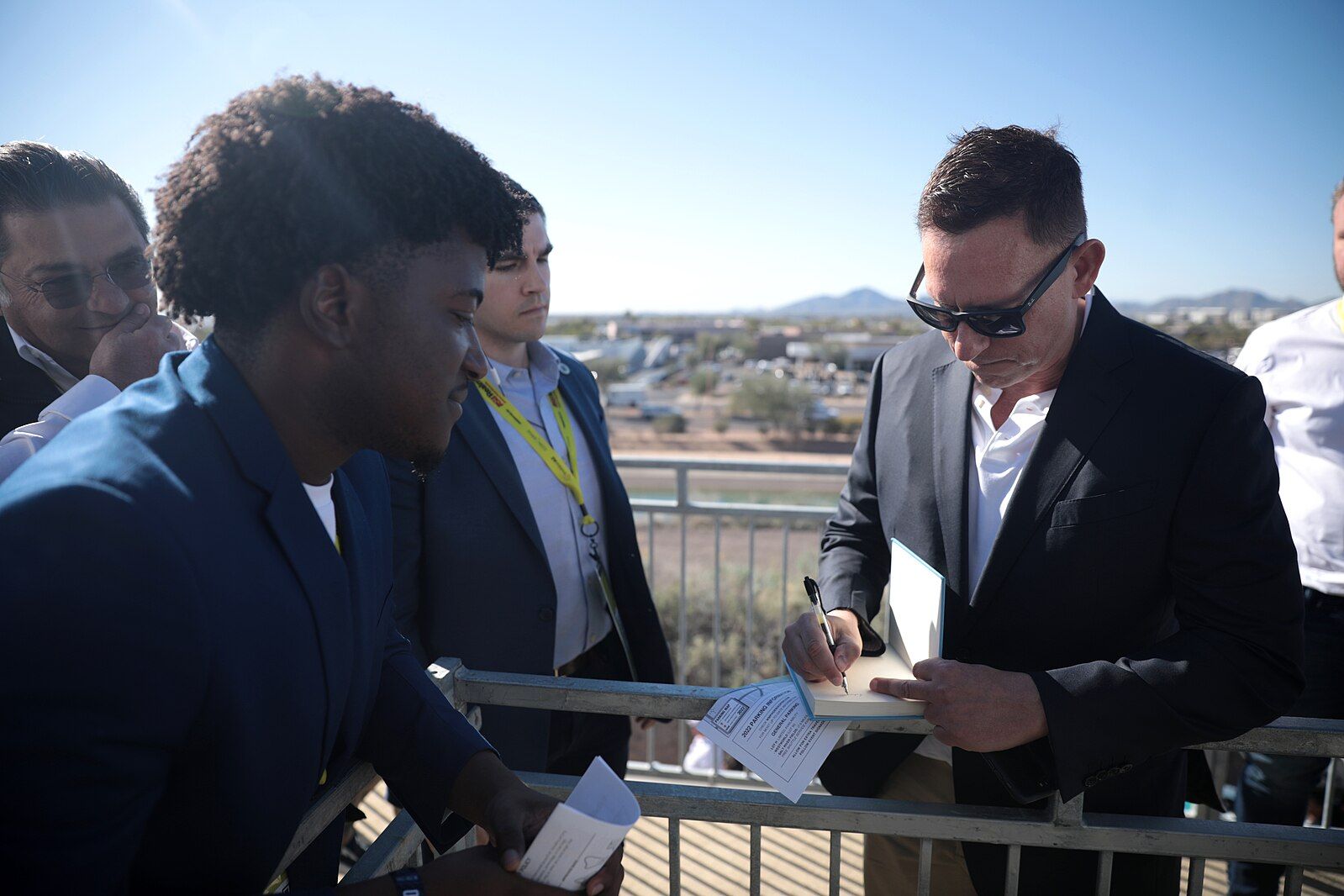
In 2016, when Thiel chose to endorse Trump, he believed Trump could bring a breath of fresh air to Washington, D.C., which had long been dominated by career politicians. While Trump’s presidency and the ensuing controversies indeed diverged from tradition and disrupted many norms, Thiel grew disillusioned with Trump’s character, rhetoric, and actions. He came to realize that, by his standards, Trump fell far short of being the ideal leader for the United States.
Nevertheless, for Thiel, returning support to the Democrats was out of the question—an unbreakable rule in his eyes.
Before the election results came out, both Democrats and Republicans were unwavering in their belief that if the opposing party won, it would spell the end of American democracy. Each side passionately rallied under the banner of patriotism, convinced that their party alone could guide the US out of the current darkness and restore hope in the nation's future.
Musk was among those who shared this sentiment. Thiel approached him to discuss it further, asking, “Seriously?”
Shortly after their conversation, the two tech moguls reached a consensus: yes, seriously. Only with Republicans in power, they believed, could the United States envision a brighter future.
Where to Go?
In Thiel’s view, the Midwest Rust Belt holds the key to resolving America’s current challenges. He believes that the true sign of the nation’s return to its former glory will come when Midwesterners can once again enjoy a comfortable, pressure-free middle-class life.
Therefore, while Thiel himself was notably absent from the spotlight during the 2024 U.S. presidential election, there was still someone in the arena acting as his proxy.
While Thiel made a significant financial contribution to Trump in 2016, he also placed a substantial bet on another figure—a then-best-selling author. Thiel supported his rise from becoming a Senator from Ohio to leading the Eisenhower Executive Office Building. He is JD Vance, the Vice President, one of the brightest political stars in Washington, D.C.
Thiel admitted it was difficult to pinpoint exactly why Vance intrigued him. His decision to back Vance stemmed not only from the Hillbilly’s exceptional writing but also from Thiel's instinct as a venture capitalist.
Clearly, this instinct was not without foundation. Vance, born and raised in the Midwest, brought an authentic love for his hometown and a neutral analysis of its people. Thiel saw this as the key reason behind his support, recognizing the rise and fall of the Midwest as a barometer for broader societal trends of the whole country.
Besides, similar to Musk, who led a group of young techies to reform bureaucracy within the federal government, Thiel also believes in the potential of the next generation. In his interview with Weiss, he boldly pointed out that many of the Trump voters from 2016 had either died or likely wouldn’t live to see 2028. Thiel said that the future belongs to today’s youth. So he made a significant investment in a Millennial in his early thirties.
Many outsiders believed Thiel harbored political ambition and speculated that he might one day run for office. However, this may not be the case. For someone who has already achieved so much in tech and business, whether Thiel feels the need to prove his capabilities in the notorious political arena remains uncertain.
At its core, politics is simply a tool to govern a country. Peter Thiel and Elon Musk, however, are businessmen at heart. While their financial contributions to politics are undoubtedly real, their involvement may be temporary. What they are truly investing in is not a specific political figure, but rather their vision for the future of the United States.
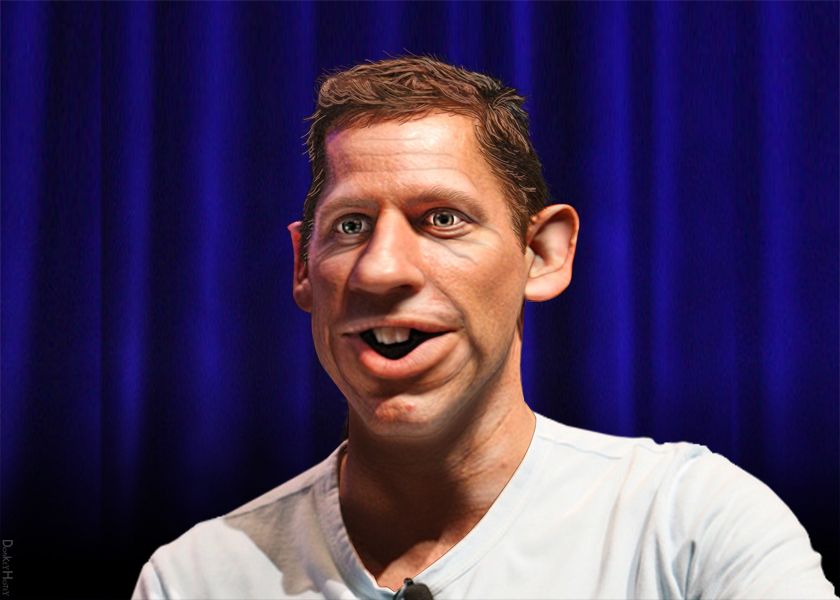
Many who know Thiel well might conclude that he himself struggles to clearly articulate his vision for the future of the U.S. However, it’s unlikely to resemble the past four years. But the question remains: Is it like what we see today?
A few days after Trump’s 2024 victory, Thiel mentioned in an interview that while defeating the Democrats brought him relief, he was concerned about Trump’s clear path toward becoming a dictator. This may have been one of the key reasons Thiel chose to distance himself from Trump this time.
Trump’s executive orders and Musk’s actions in Washington, D.C., immediately following the inauguration materialized Thiel’s concerns. While Trump’s supporters cheered, the term 'Constitutional Crisis' became a buzzword among Democrats and most mainstream media outlets.
However, both domestically and diplomatically, the challenges the U.S. faces today are constantly evolving. Under this context, is the over two-hundred-year-old U.S. Constitution always right and untouchable, beyond any scrutiny? U.S. democracy is the cornerstone of the American dream and its glory. However, its side effects should not be overlooked. For instance, the delicate balance between the three branches of government often leads to inefficiency due to internal conflict.
Meanwhile, many countries, including traditionally democratic ones, veered sharply to the far right following the COVID-19 pandemic, abandoning their progressive paths and returning to conservative ideologies. While some were influenced by savvy politicians, quite a few were shaped by the desires of their constituents. Given this global trend, is it really surprising to witness the shifts in the U.S. following the 2024 election?
Compared to a stagnant status quo, changes might not be so bad. Of course, it's unclear what specific changes we want to see. The key point is that there have always been powerful capitalists behind U.S. presidents, with Musk and Thiel being just two among many. They are not the first to 'eat the crab,' so to speak. However, most prefer to stay behind the scenes, like Thiel, manipulating things discreetly, while fewer, like Musk, boldly step into the spotlight—walking into the Oval Office with his four-year-old son on his shoulder. In any case, the future of the U.S., whether democratic, republican, or even imperial, may ultimately be shaped by the calculated strategies of tycoons who adhere to the "Zero to One" philosophy.

 Yuan Media
Yuan Media